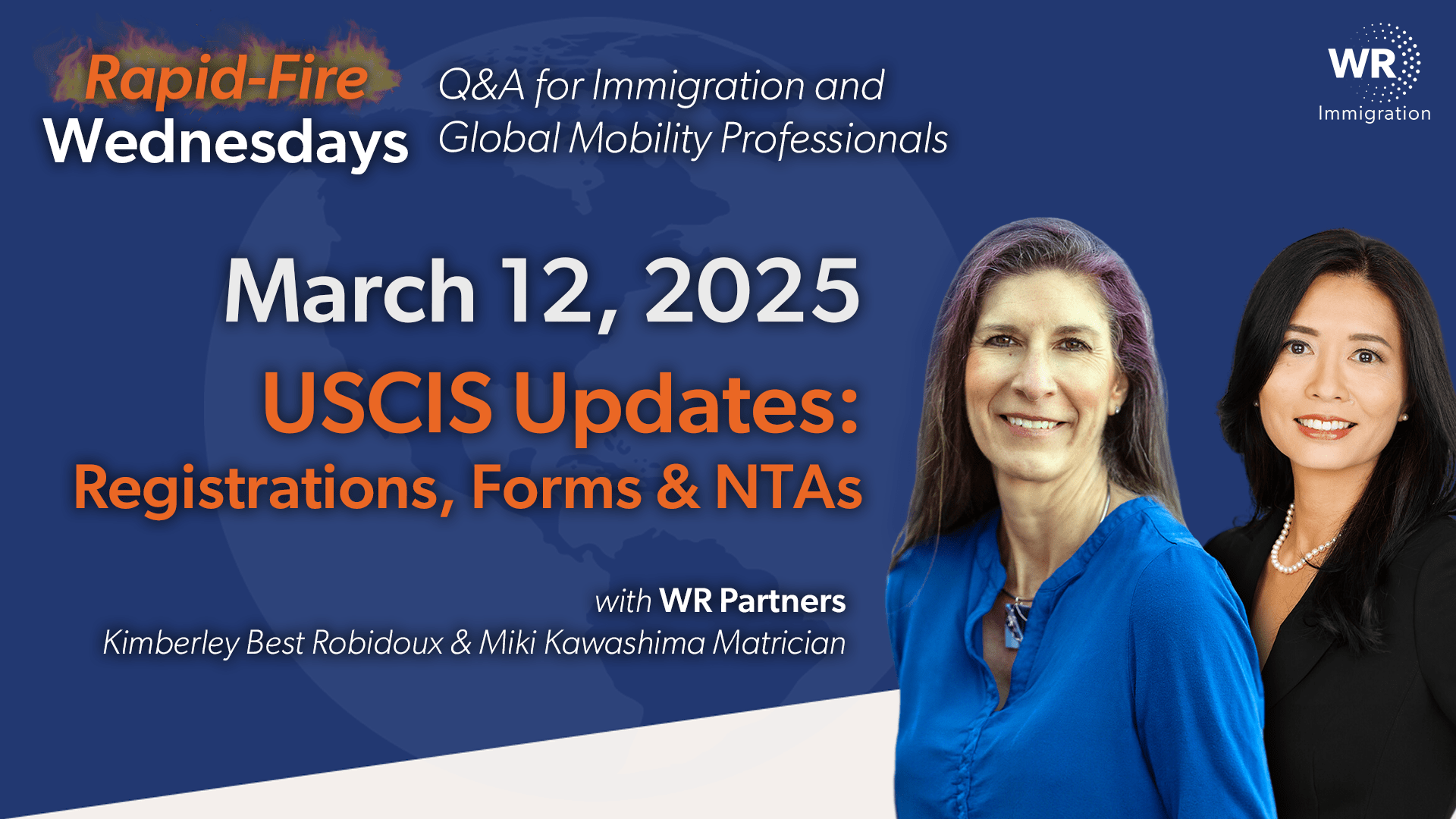The transcript version of our weekly Q&A livestream for corporate immigration professionals. Join our Immigration News Digest Newsletter for more immigration updates.
By Kimberley (Best) Robidoux & Miki Kawashima Matrician
🔥 Question: What is the latest update on the new registration requirement for foreign nationals?
Response: The unpublished version of the interim final rule (IFR) on the registration requirement became available on March 7th and is set to be published on March 12th. This new process, introduced as part of an executive order, will require non-citizens staying in the U.S. for more than 30 days to create a My USCIS online account, submit a G-325R form, and complete biometrics at a designated center. Once processed, they will receive a registration receipt, which they must print and carry. Failure to comply could result in fines up to $5,000 and imprisonment of up to six months. Dependent children turning 14 will also need to register within 30 days of their birthday, making this a critical requirement for HR and global mobility teams to monitor.
🔥 Question: How will this new registration requirement impact foreign national employees and HR professionals?
Response: While most foreign national workers already have I-94s and won’t need to register, this rule is particularly significant for dependent children and certain non-citizens, such as DACA and TPS holders. HR professionals should proactively communicate these requirements to employees, ensuring compliance and preventing potential penalties. The rule also mandates that any change in residential address be reported within 10 days, reinforcing the importance of staying on top of immigration obligations.
🔥 Question: What happened with the updated USCIS forms released last week?
Response: On March 3rd and 4th, USCIS issued 12 updated forms, including the I-485, I-131, and N-400, which were made effective immediately—without a grace period. This abrupt change caused significant disruption, as applications that were prepared for submission suddenly became invalid. The updates primarily involved the removal of gender identity questions and a return to using the term “aliens.” The American Immigration Lawyers Association (AILA) advocated for a grace period, eventually leading USCIS to allow the use of older forms until April 2nd. However, after that date, only the new versions will be accepted.
🔥 Question: How do these immediate form changes impact applicants?
Response: The lack of an initial grace period created confusion and risks for applicants, as those submitting outdated forms faced rejection, potentially causing them to fall out of status. Although a temporary extension was granted, it underscores the need for HR and immigration professionals to stay vigilant about sudden regulatory changes. Moving forward, applicants should double-check form versions before submission to avoid unexpected complications.
🔥 Question: What does the new USCIS memo on Notices to Appear (NTAs) mean for foreign nationals?
Response: The latest USCIS memo clarifies that removal proceedings will be initiated when an application denial results in a foreign national losing legal status. While employment-based petition beneficiaries are exempt, their dependent family members are not. This means that if an H-1B worker’s dependent’s H-4 application is denied, the dependent could face removal proceedings even though the primary employee remains unaffected. Family-based petition beneficiaries will also be impacted, making it more crucial than ever for applicants to maintain non-immigrant status whenever possible.
🔥 Question: How should HR and immigration professionals respond to these policy changes?
Response: Given the immediate impact of these changes, HR professionals should advise employees on the importance of maintaining their underlying non-immigrant status, even when pursuing permanent residency. Employers should also work closely with immigration counsel to ensure compliance and minimize risks associated with policy shifts.
Send us your questions via DM or using the below link!
HR Question Submission Form | Rapid-Fire Wednesdays
See you next week!


